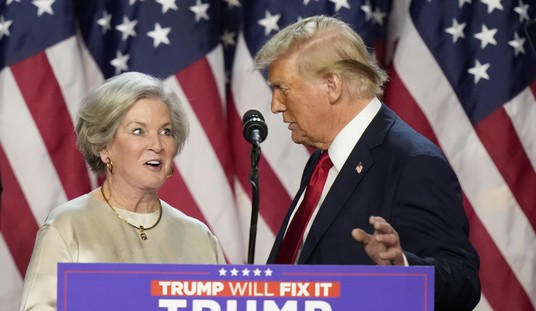But last week the evidence in the SEC's case not only looked thin but was fueling suspicions about the timing of the SEC action just as President Obama's get-tough financial regulatory bill was moving to the Senate. This dog-eared case has been kicking around in the SEC since last year and then, just when the bill appeared to be in trouble, the civil suit was filed, handing the White House a needed weapon to bolster its arguments for a massive regulatory crackdown.
Presidential press secretary Robert Gibbs was fielding questions last week in his daily press briefing about the political timing of the suit, reminding reporters that the SEC is an independent agency that by law is beyond political influence. Obama said the White House had nothing to do with the suit. Still, the SEC's last-minute decision at a crucial juncture in the legislative battle appeared to be more than just a coincidence. Why the weekend before the Senate was about to take up the bill?

Meantime, the network-news shows raised few if any questions about its timing, or about the merits of the case itself, as one financial analyst after another indicted, convicted and sentenced Goldman Sachs. NBC dropped all pretense of balance.
But in the days that followed, other analysts took a sharper and increasingly skeptical look at the case laid out in the SEC's 22-page complaint and found it wanting in many respects.
Recommended
Here's how Washington Post financial writers Steven Mufson and Tomoeh Murakami Tse led their story early last week:
"One former hedge fund manager said that when he read the headline about Goldman Sachs being charged with fraud he thought, 'It's about time.' But when he read the details of the case, he said he thought, 'That's it?'"
The venerable Wall Street banker, at the center of controversy in the packaging and selling of subprime mortgage securities, has a lot of critics. But many more investment firms were selling these securities when the market still believed the housing boom had a longer way to go, while others bet against them in complicated derivatives used to spread the risk on whether their value rose or fell.
The two Post analysts point out that "many rival traders and fund managers say Goldman frequently bets against the very securities it is promoting to customers. That might be perfectly legal as well as common in the financial services business -- given the multi-faceted nature of investment banks, which underwrite and market securities, analyze them and trade on their own accounts."
Goldman was the middleman between two large, astute brokerage firms that believed they knew what they were buying in this instance, despite the poor quality of the mortgages that the SEC said were hand-picked by billionaire hedge fund manager John A. Paulson, who intended to bet they would lose their value. But "the buyers of those loans might have bought them anyway given their rosy outlook about the housing sector," the Post's analysts said.
In response to the suit, Goldman's attorneys told the SEC that all of the "participants in the transaction knew that someone had to take the other side of the portfolio risk."
Moreover, they added, "all participants were highly sophisticated institutions that were knowledgeable about subprime securitization products." Apparently, some of the SEC's board members thought there was less here than the charges warrant. They voted 3-2 to bring the charges, revealing a rare split in the merits of the case.
"Unless the SEC is sitting on more evidence than it has laid out so far, the charge sheet looks flimsy. If Goldman has become the poster child for excessive power on Wall Street, the SEC might become a poster child for government power run amok," writes Post columnist Sebastian Mallaby.
"The worst that can be said on the basis of the available evidence is that Goldman knew" ACA, a buyer in the deal that specialized in mortgage securities, "was being stupid and failed to point this out. That falls far short of the offenses that the SEC alleges," he said.
But the case gets thinner as new details emerge. Paulson pointed out in a conference call with reporters Tuesday that ACA examined the 123 mortgage securities he had selected for Goldman, ultimately accepting 55 and rejecting 68.
Allan Sloan, Fortune magazine's senior analyst, doesn't like what Goldman has done, but thinks "the SEC case...seems more than a little weak legally," he wrote last week. " If I were a betting man, I'd put money on Goldman prevailing in court."
The SEC's reputation, such as it is, has been badly damaged by the subprime mortgage debacle that brought the economy down in 2008 while regulators were asleep at the switch. But it just may have picked the wrong case to restore its battered reputation.
"The defense that the two key investors were considered some of the most savvy also indicates that it was not really material omission (by Goldman) because it may not have modified their behavior," former SEC enforcement official Ron S. Geffner told reporters.
In the end, Goldman may win this suit by what is being called the "big boy defense," investors who knew what they were doing back in 2007 when the housing boom still had a ways to go before it came crashing down.

























Join the conversation as a VIP Member